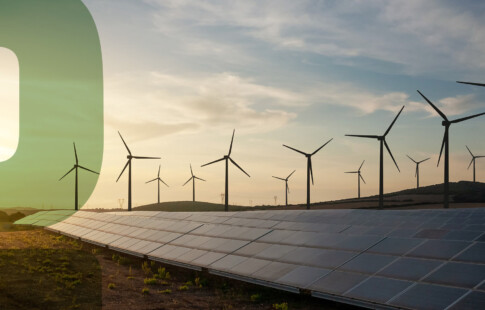
Are Electric Cars Better for the Environment? A Closer Look at EVs
We are reader-supported. When you buy through links on our site, we may earn affiliate commission.
Are electric cars better for the environment? Yes, but some people will still say no. It all depends on who you ask. Many still doubt the environmental advantages of switching to electric vehicles (EVs), no matter how much evidence shows otherwise.
How Are Electric Cars Better for the Environment?
Let’s look at both sides of the EV debate and unmask some myths that can hinder the massive adoption of a cleaner transportation system.
EVs Produce Less Carbon and Greenhouse Gas Emissions
One reason why EVs are better for the environment has to do with their zero tailpipe emissions. Even when emissions from EV battery manufacturing are considered, traditional vehicles still produce higher greenhouse gases (GHGs) than EVs. The bulk of GHGs emitted by an EV comes from its battery. However, since EVs have zero tailpipe emissions, driving the vehicle more than makes up for its carbon footprint with regular use.
A typical internal combustion engine car, like a gas-powered Toyota Camry, can produce up to 385 grams of carbon dioxide per mile. This is considerably more than the 189 grams produced by an all-electric Chevrolet Bolt per mile throughout its lifetime. Driving an EV contributes to reduced emissions, which is better for the environment overall.
EVs depend on electricity for charging instead of oil-derived products like gasoline and diesel. While power grids worldwide still rely on coal to generate electricity, there has been significant progress in adopting cleaner, alternative energy sources like wind and solar. In 2020, renewables produced 21% of all electricity generated in the U.S., second only to oil.
EVs Run on Cleaner Energy
Generating energy is significantly cleaner than refining oil for transportation. For example, driving an EV in Vermont uses renewable energy to charge between trips. The Greenest Mountain State lives up to its name by generating nearly 100% of its electricity using renewable energy sources. If more states follow suit and continue to pursue greener energy sources, EVs can and will run on cleaner, more sustainable energy in the future.
Cleaner transportation is within reach for many drivers and passengers as car manufacturers also see the merits of switching to EVs. General Motors — a leading name in the automotive manufacturing industry in the U.S. — announced its plan to develop purely electric vehicles and eliminate its gas-powered cars by 2035. Volvo, another major player, aims to up the ante with its plans to introduce a fully electric vehicle lineup by 2030.
The government is also placing its bets on an electric future by introducing Bipartisan Infrastructure Programs with a heavy emphasis on improving the country’s power grid. Foreseeing the EV sales and adoption boom, the U.S. government is gearing up to upgrade electric transmission and distribution infrastructure nationwide with a budget of over $13 billion. Again, are electric cars better for the environment? Yes, and the U.S. government believes so, too.
EVs Are More Efficient Than Conventional Cars
A conventional car only uses 16-25% of its engine’s energy to propel itself forward. Most of the original energy is spent on engine, drivetrain and parasitic losses. This is a far cry from the 87-91% energy maximized by a typical EV to power its wheels. Simply put, EVs are more efficient on the road.
Electricity drives an EV forward and is a more stable energy source than fuel. Conventional cars lose energy as soon as their ignition is turned on. On the other hand, EVs use sophisticated systems to return lost energy during driving. When an EV brakes, it recovers much of its energy and returns it to the battery for acceleration. This regenerative braking is essential in creating a more energy-efficient vehicle.
Some people would continue to argue that everything that powers an electric car comes from natural, primarily unrenewable energy sources. While part of the argument is valid, power plants are more efficient than car engines in energy production. For example, geothermal plants — specifically flash steam plants — inject water into reservoirs to create a cyclical process, repeatedly reusing byproducts for electricity generation.
What Are the Common EV Myths and Misconceptions?
Manufacturing technology will continue to develop and so will electric cars. But why are some people still convinced they’re far from being the future of transportation? This may be due to some myths and misconceptions surrounding EVs.
EVs Have Terrible Mileage
In the U.S., the average range of EVs is nearly 300 miles between charges, which is more than enough for daily trips around town while doing errands. Range anxiety is a common fear among would-be buyers of EVs. With recent developments in battery and charger technology, this may soon be a thing of the past. EV drivers are recommended to charge up to 80% between trips to maximize the quick charging features of some EV models.
Charging EVs is More Expensive Than Fuel
Going on a long road trip in a conventional car can be as easy as fueling up at a gas station and driving away. It’s quick, easy and convenient. But with current fuel prices, consumers may be tempted to put the pump down. A 2020 Consumer Reports study shows EV drivers spend roughly 60% less annually on charging costs than drivers of conventional cars. This is likely due to cheaper electricity generation costs than refining crude oil into petroleum products.
EVs Are Less Safe Than Gasoline Cars
EVs are subjected to rigorous safety tests like any other vehicle and must meet the Federal Motor Vehicle Safety Standards. In addition, EV battery packs have their own testing standards to prove they are safe to use and pose no extra risks to consumers in the event of collisions or battery short circuits.
There Are Not Enough Chargers for EVs
The Biden administration announced in February 2023 its goal to build a network of 500,000 EV chargers along America’s highways. This is in response to the country’s growing adoption of electric vehicles. As of May 2023, there are over 138,000 charging outlets in the country, with more being built by private companies wishing to capitalize on the EV boom. Drivers can also locate the nearest EV charging station using apps like PlugShare.
Why EVs Are the Future of Transportation
Are electric cars better for the environment? Yes, and scientists, engineers, car designers and manufacturers are working around the clock to make EVs greener, safer, more efficient and affordable. Governments worldwide are also creating more policies leaning toward the massive adoption of EVs due to their inherent environmental and economic benefits. It’s only a matter of time until the world fully realizes that a greener means of transportation is the way to a sustainable future.
Share on
Like what you read? Join other Environment.co readers!
Get the latest updates on our planet by subscribing to the Environment.co newsletter!
About the author

Steve Russell
Steve is the Managing Editor of Environment.co and regularly contributes articles related to wildlife, biodiversity, and recycling. His passions include wildlife photography and bird watching.





